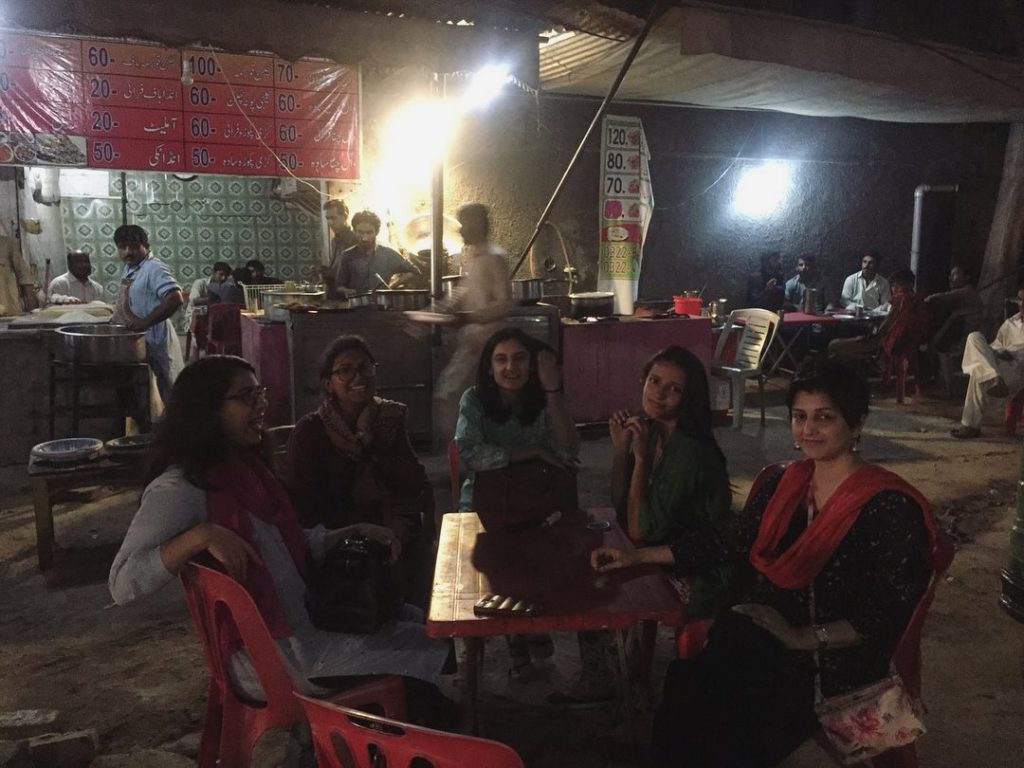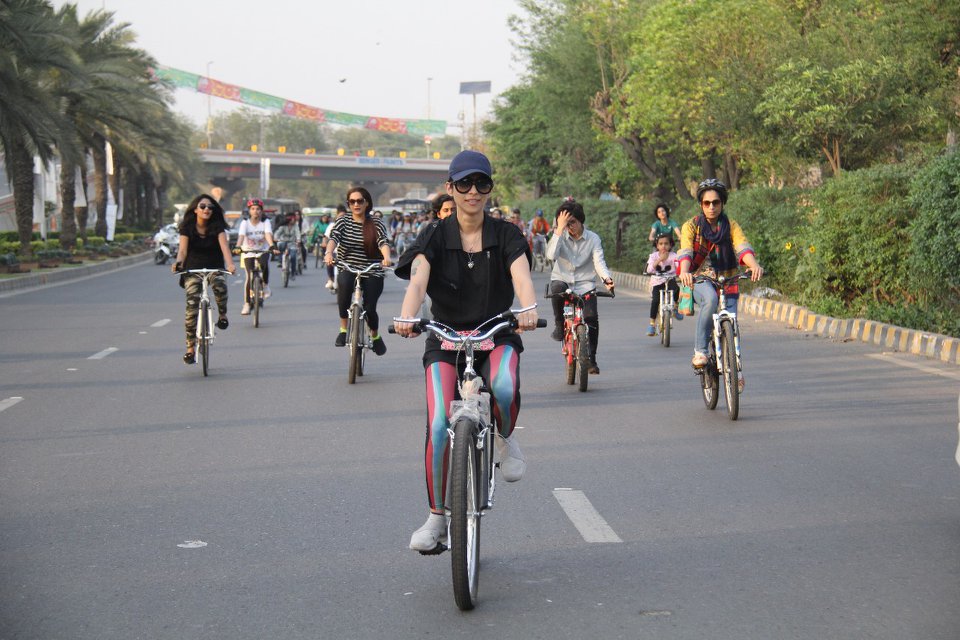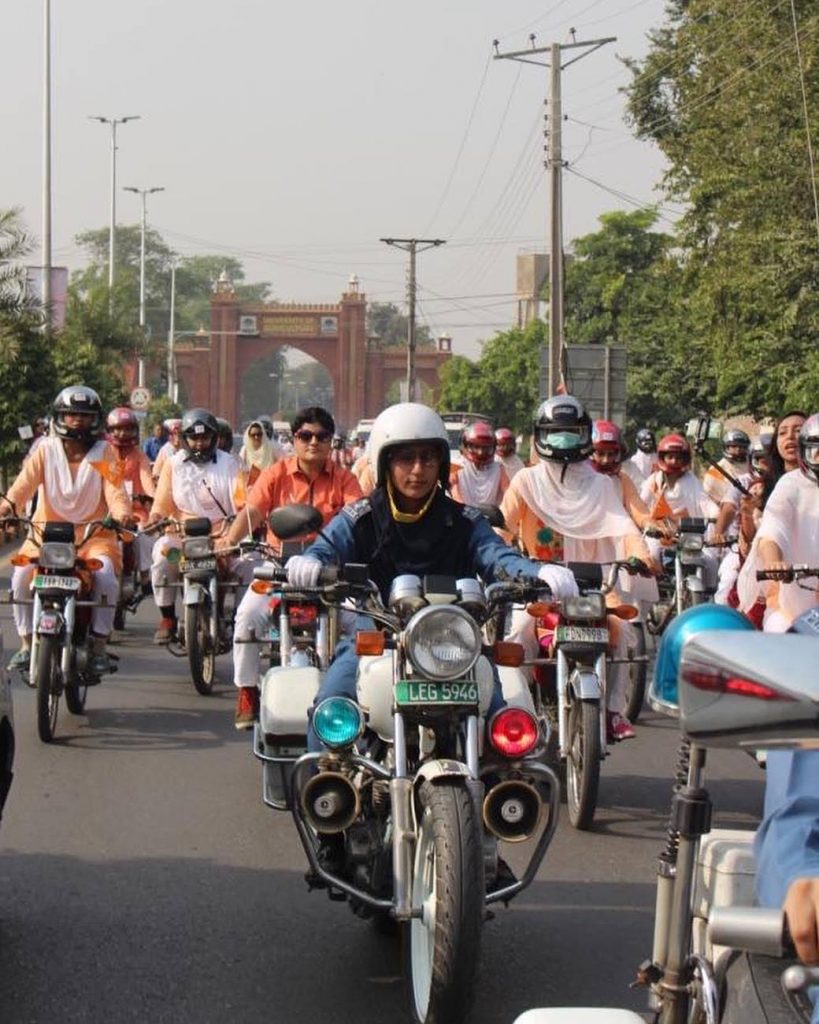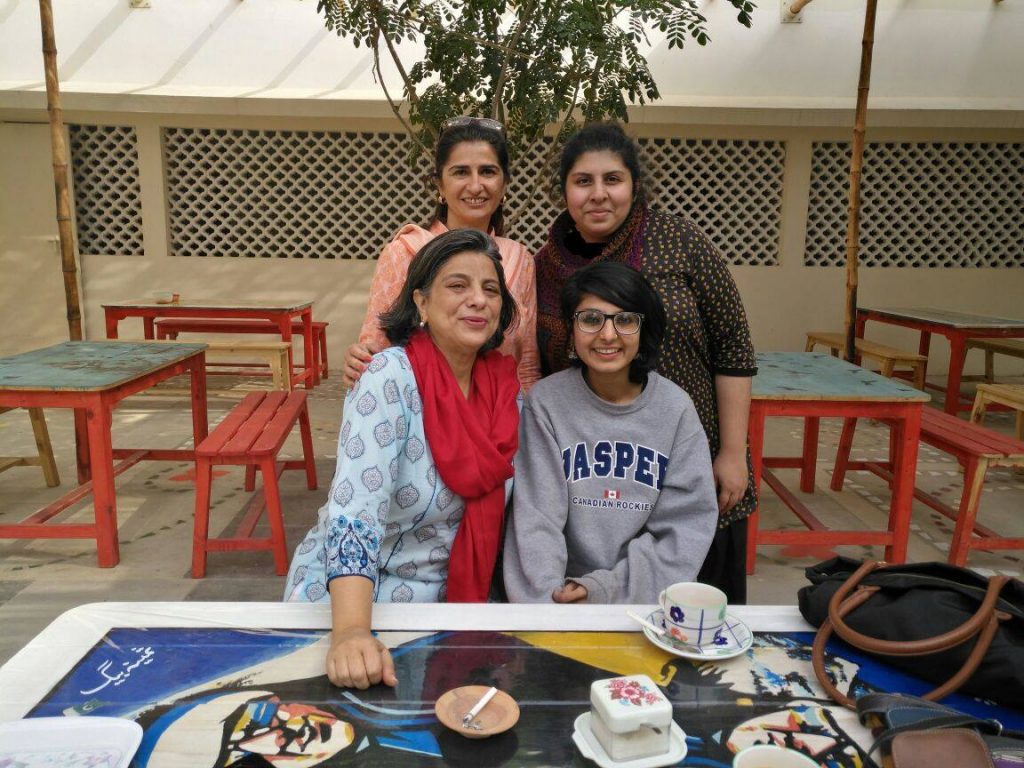This article was first published in ‘White Print’ – a braille magazine for the visually impaired, founded and published by Upasana Makati.
Women across the world have fought battles in their own way to get an equal footing against their gender counterpart. Be it for their self-respect and dignity inside their own homes, breaking the glass ceiling in the corporate world, or being able to create a standing in the society, it’s a constant struggle for the female gender. Today, we bring to you a story about a few fearless girls from our neighbor country, Pakistan, who shun the restrictions and injustice and voiced the slogan of equality in an interesting way. Here’s our chat with girls who fashionably call themselves Girls at Dhabas and are a rage on social media!

The Genesis Of “Girls At Dhabas”
Our group was formed as a result of the frustrations and limitations we experienced as women in Karachi; public space here is predominantly occupied by men. The women who do navigate public spaces are usually chaperoned by men. Our access to these spaces (including transport) is limited, and street harassment and safety are serious concerns.
We started by integrating ordinary activities like hanging out at male-dominated tea-shops with our friends, and documenting these on social media. As the tag inspired attention and gained support on our social media networks, we realised that our frustrations resonated with many others, and saw potential for building a community of young feminists in South Asia. We held a (typically unheard of) street cricket match for girls, and we’re scheming to start biking groups next. While everyone acknowledges the need for women to own their city and reappear on the streets, we want to push them one step forward to actually doing it.
We are a group of 20-something women in Pakistan. Sadia Khatri is a journalist and currently working for an advocacy group. Natasha Ansari is an economist working for a research institute. Najia Khan is a student studying social sciences. Sara Nisar is an undergraduate student in art working at a non-profit for free thinkers. Sabahat Zakariya is off for grad school. We have a couple of other girls as well who help us moderate the page, all doing different things. Our team is really just whoever is present and available to contribute at the moment, and we’re likely to expand further.

The Voice Of Social Media
Our primary aim was to reclaim dhabas as a safe space for women. Like several other public spaces, they are typically frequented by men or by women accompanied by men. We’d like to see more women on the streets and in spaces we are not traditionally thought to occupy. It’s not just what spaces we occupy but how we occupy them, and social media is also an extension of that public space.
Social media is no longer just a tool for entertainment. It demands a certain level of responsibility towards not only the circles you belong to, but also the socio-political fabric of the society. Politics seeps in when people have to take sides, and social media has greatly aided this phenomena, where people not only form their own opinions but have the liberty and convenience to pick and choose from the million of ideas and thoughts floating around – or being ‘posted’.
The scope of a cause gaining response on social media is limitless. In countries like ours where progressive acts are frowned upon, social media becomes that voice, that first step of courage.

When The Girls Chill At The Dhaba
We invite curious looks, some of them downright discomforting, while others are mostly amused – it’s rare to see a woman in Karachi hanging or chilling by the roadside. Everyone deals with it differently; a few get intimidated, though not for long. Others try to initiate dialogue, while some of us simply ignore and continue portraying that we have every bit of a right as the men to be in that space.
Majority of the times though, our experiences have been positive. People have been welcoming and treat us with great respect, often times conversing with us.
Surprisingly, there hasn’t been a lot of backlash, or negativity, though many men in particular find it hard to wrap their heads around the idea of women hanging out in public spaces, especially a dhaba. Or the thought of letting women make their own choices. But we have a lot of male supporters as well, men are posing and accompanying the girls at the dhaba hangouts and happy at the fact that they get to hang out with their female friends at dhabas too now – a very common place for them.
There hasn’t been any trouble until now, which again contradicts the statements about how ‘unsafe’ the streets are. Nor has there been any major backlash – in person and on social media – that compromises the security and safety of everyone who has become a part of Girls at Dhabas. For a lot of people though, this is a novel idea and many find it hard to accept it openly. This has led to some discouragement and safety concerns, especially from the families about putting ourselves ‘out there’ and attracting unwanted attention from different factions of society.

Dhaba By Women For Women
We want to expand this movement to other domains traditionally dominated by men: sports (particularly street sports), transportation on two-wheelers, and running a dhaba. We are particularly aware of the lack of physical spaces where women can even sit and gather.
Our immediate goal, in light of our initiative’s resonance with other young women, is to establish a dhaba/tea stall catered to women and run by women, within the next year.
This physical safe space for women in the form of our own street-side dhaba will serve as a resource base to run activities; will hold workshops, seminars and campaigns around gender and feminism; and will facilitate women to come together and address issues of public space access and harassment. It will also make a small dent in the dearth of public spaces where women can just feel comfortable hanging out for long hours.
Liked reading this? Then you might also like to read Shyam Shah & Surabhi Srivastava – Team Innovision Revolutionizes Smart Braille Displays With BrailleMe.
If there’s any story that needs to be told, we will tell it. Write to us at contact@knowyourstar.com with your story lead, or contact us on Facebook or Twitter.